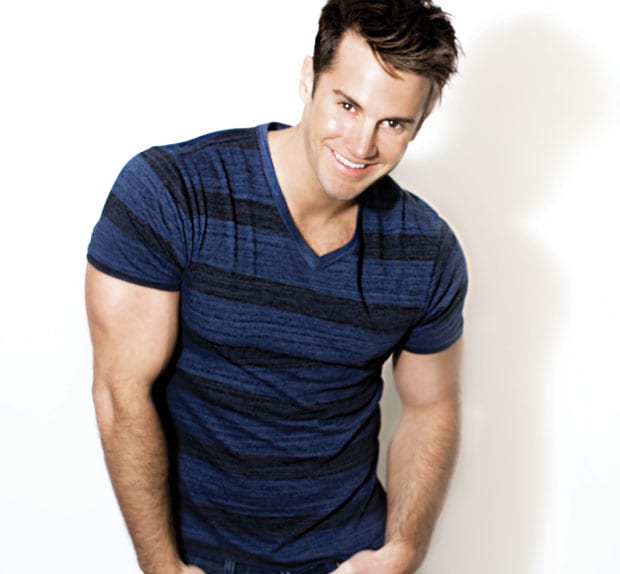Are you an Internet mean girl and you don’t even know it?

TYLER CURRY | Contributing Writer
tylercurry83@gmail.com
I was a sophomore in college when I first typed “Facebook,” into my web browser. Then, it was an interactive tool for university students to list their class schedules, find other students in their classes and post general mindless dribble about what boring topics they were currently obsessing over. It was simple then — dumb status updates, silly pictures that I have long since erased and a mindlessness of what your social media profile said about you.
Ten years later, the simple little site for college students has now turned into a virtual marketplace or business, art, fashion and yes, your personal life. But with the evolution of Facebook and the introduction of other social media applications has come the development of our online virtual reputation. Are you considered the selfie-queen, the person who shares too much or the one who constantly posts his daily mundane activities?
Or, worse, are you the one who boasts your superiority by making fun of each and every one of the characters on your Facebook page? Frequently, my status feed is inundated with articles breaking down the worst types of social media users. Worse, those articles pull in the photos, videos and statuses of unsuspecting souls.
Some could make the argument that if you don’t want your social media junk criticized, don’t publish it in the first place. But regardless of your privacy settings, you should be able to make an utter fool of yourself in the safety of your virtual friendship circle.
Then there are the friends who publicly shame and ridicule their anonymous pals for their social media content. Of course, it’s all under the veil of innocuous humor. I’m talking about the unceasing barrage of “What annoys me most…” or “If I see another…” and on and on.
Sure, we all roll our eyes from time to time at that one friend who just keeps making excuses to take shirtless pictures. But what’s worse than his harmless vanity posts are the negative and cruel critiques of said friends who are doing nothing more than validating themselves on an application meant for self-validation.
Sometimes these virtual mean girls can turn into full-fledged online bullies. This past month, a pseudo-gossip story appeared on my Facebook feed. The title of the column was, “Is This Guy Hot Enough to Call Him Mr. Hotlanta?” The casual onlooker would have probably scanned the headline, glanced at the picture and assumed this individual was some sort of public figure. We all generally agree that those who seek to be in the public eye also agree to be subjected to an onslaught of public criticism — and not the constructive kind.
But this story was different. I know the man in question, and his name is John Northstar. More importantly, I know he is not the kind of guy to try and become Internet famous. His friends gave him the title of “Mr. Hotlanta” after he relocated from Austin. The nickname was partly a nod to his handsome looks and part lighthearted mocking of his endless stream of adorable selfies.
Northstar was in on the joke, and he began using his nickname in his social media profile. Although he’s a private person, it was only a matter of time before Georgia’s version of Dallas noticed the hot little Latin with tons of tattoos and a beaming smile.
The column appeared in Project Q Atlanta and the author had taken Northstar’s photos from his Instagram and Facebook without his permission or knowledge. As the title suggests, the article was simply asking for feedback on whether he was “hot” enough to call himself “Mr. Hotlanta.”
The comments were hateful, insensitive and completely unwarranted. My friend found out about the article after one of his friends pointed him in the direction of the site. By then, the comments section was already more than vibrant and could have done significant damage to a less secure man.
It’s easy to brush off the social-media-mean-girl mentality as just part of our ever-changing online culture, but how can we accept such behavior that has the potential to do real damage to unsuspecting users and breed traditions of acceptable cruelty for generations to come? The word “bully” has almost become a curse word with its newfound weight in political correctness. Still, online bullying is rampant. What’s worse is that these aren’t teenagers who are taking part in this cafeteria behavior; they are adults.
The culture of humiliation as humor has created a constant feed of articles, blind items and gossip sites that only serve to increase our online worth by demeaning others. Even sharing an article aimed at breaking down the worst kind of Facebook user can indirectly offend and ostracize one of your virtual connections.
I have been guilty of this multiple times and have also had my feelings hurt a time or two from a friend’s status. Was it always on purpose?
Hardly. But do we have the ability to pause for a moment and encourage an environment, virtual or otherwise, that rejects the validation at the expense of others? Certainly.
The emergence and increasing importance of our online social profiles have created a new responsibility of monitoring how your presence affects others. Just as you want your personal interactions to leave those around you with feelings of positivity and kindness, your virtual interactions are now equally important.
Developing the content of your character is a constant process. Although we may laughingly disregard our Facebook profiles and Twitter accounts as a harmless waste of time, it may just be the most lucid depiction of who we really are.
So tell me, do you like your virtual self?
This article appeared in the Dallas Voice print edition December 20, 2013.

